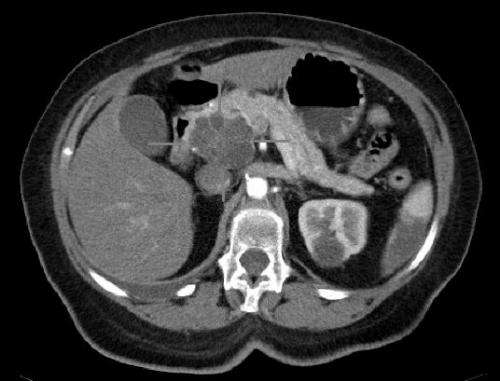Experts call for a new approach to reducing cases of pancreatic cancer

Pancreatic cancer survival rates have remained at an alarmingly low 3 to 6% for more than 40 years. Ahead of World Pancreatic Cancer Day, 13 November 2015, United European Gastroenterology (UEG) call for greater action from healthcare providers and governments on pancreatic cancer and new public health initiatives to raise awareness of symptoms and risk factors and ensure earlier diagnosis and an increase in survival rates.
Pancreatic cancer is the eighth most common cancer in Europe, with approximately 104,000 newly diagnosed cases annually yet, according to Matthias Löhr, UEG pancreatic cancer specialist, knowledge of the disease is alarmingly low. "Pancreatic cancer is a deadly disease with highly unmet medical need. It is vital that there is more awareness of the risk factors and symptoms of pancreatic cancer among the public and medical community to allow more people to be diagnosed in time for surgery – currently the only potential for a cure".
Chronic pancreatitis and diabetes as well as lifestyle and environmental factors such as, obesity and smoking are well-recognised major risk factors for pancreatic cancer but collectively only account for less than half of all pancreatic cancer cases. According to UEG's Survey of Digestive Health across Europe, increased risks for people with diabetes have been reported as between 40% and 120% and people who smoke have been diagnosed with chronic pancreatitis (a pre-cursor to pancreatic cancer) ten years earlier than non-smokers. In fact, The European (EPIC) study showed that passive smoking, either in the home or at work, can increase the risk of pancreatic cancer by 50 per cent and that children who are exposed daily to tobacco smoke have double the risk of contracting pancreatic cancer in later life.
However, recent research also indicates a strong link between pancreatic cancer and common bacterial infections. Epidemiological data suggest that Helicobacter pylori, a common strain of bacteria found in the stomach, may be a risk factor for pancreatic cancer. These bacterial infections may contribute to the progression of pancreatic cancer by acting jointly with other risk factors that impact inflammation and immune response, such as smoking and obesity.
"A well as action from healthcare providers, increasing public awareness of the symptoms of pancreatic cancer and following some simple lifestyle improvements will go a long way to ensuring that pancreatic cancer survival rates dramatically improve within the next few years" adds Professor Löhr. "Symptoms to look out for include: abdominal or back pain, weight loss, jaundice, loss of appetite, nausea and changes in stools and I recommend to all my patients that they can reduce risk of any cancer by following a balanced diet, taking regular exercise, drinking alcohol in moderation, not smoking and visiting the dentist regularly".
















